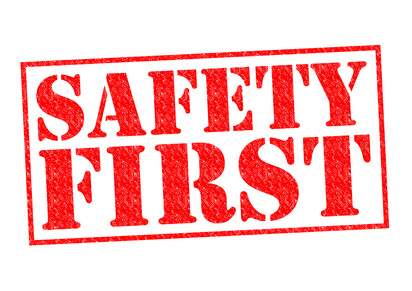Active Cycling- Safety Briefing

The most important thing is that you and your fellow cyclists return from your trip safe and well and you don't cause any accidents along the way!
Whilst cycling in the Tough Zone does pose a few risks, there are plenty of ways to minimise these and keep you as safe as possible whilst in the saddle.
SAFETY EQUIPMENT
- Cycle helmet! Your head should be protected in case you have a tumble.
- If you cycle in the dark or near dark, or in rain you must have front white light and red rear light.
- A puncture repair kit and bicycle pump are extremely useful.
There are some essential and advisory pieces of kit to keep you safe
OBEY RULES OF THE ROAD (AND CYCLEPATHS)
- Ensure you have a good understanding of roadsigns.
- Give way when necessary.
- Leave plenty of space between other cyclists of road users
- Do not cycle on pavements unless specifically designated as a cyclepath (it's illegal to do so in the UK)
You must cycle legally and safely to protect yourself and other road users
FITNESS
- Don't over do it, take rests as often as needed.
- Test yourself on short journeys first before undertaking longer rides.
- Manage any injuries you have, you don't want to make them worse.
- Extreme weather can make your cycle ride a lot tougher, make sure your prepared.
Ensure you know what level of fitness you need for your journey
SECURITY & SAFETY
- Only take the bare essentials with you when it comes to valuables.
- Lock your bike securely to an immovable object whenever leaving it unattended in a public place.
- Do not leave bags, helmets or other equipment with your bike when leaving it unattended.
- Check your bike before you go on your ride to ensure it is fully maintained and functioning properly.
Keep you and your valuables safe and secure when cycling.
WEATHER
- Always check weather reports before heading out
- Take equipment/clothing for weather that could happen
- Wet and icy roads/paths can be slippery take extra care
- Rain can turn cycle tracks muddy very quickly
Weather can change unexpectedly
SPARES AND REPAIRS
- It is advisable to take a few tools and spare inner tubes with you
- Research basic bicycle repairs and maintenance to keep you bike in full working order
- Check tyres, brakes and lights (as a minimum) before every journey
- Keep you chains/gear clean and well lubed
It's good to familiarise yourself with the workings of your bicycle
Professional Training: Nothing can compare to professional training delivered by qualified trainers who can carefully guide you through how to safely learn and practice the required techniques in a controlled environment.
Medical Advice: Before taking part in a new sport or activity you should consult your doctor or other healthcare worker to identify any potential risks to your wellbeing. This is particularly important if you are pregnant, elderly, suffered previous injuries, suffering from a long term medical condition, or disabled. Whilst these conditions do not preclude you from taking part in most activities, getting advise can help you adapt to suit your individual needs.

